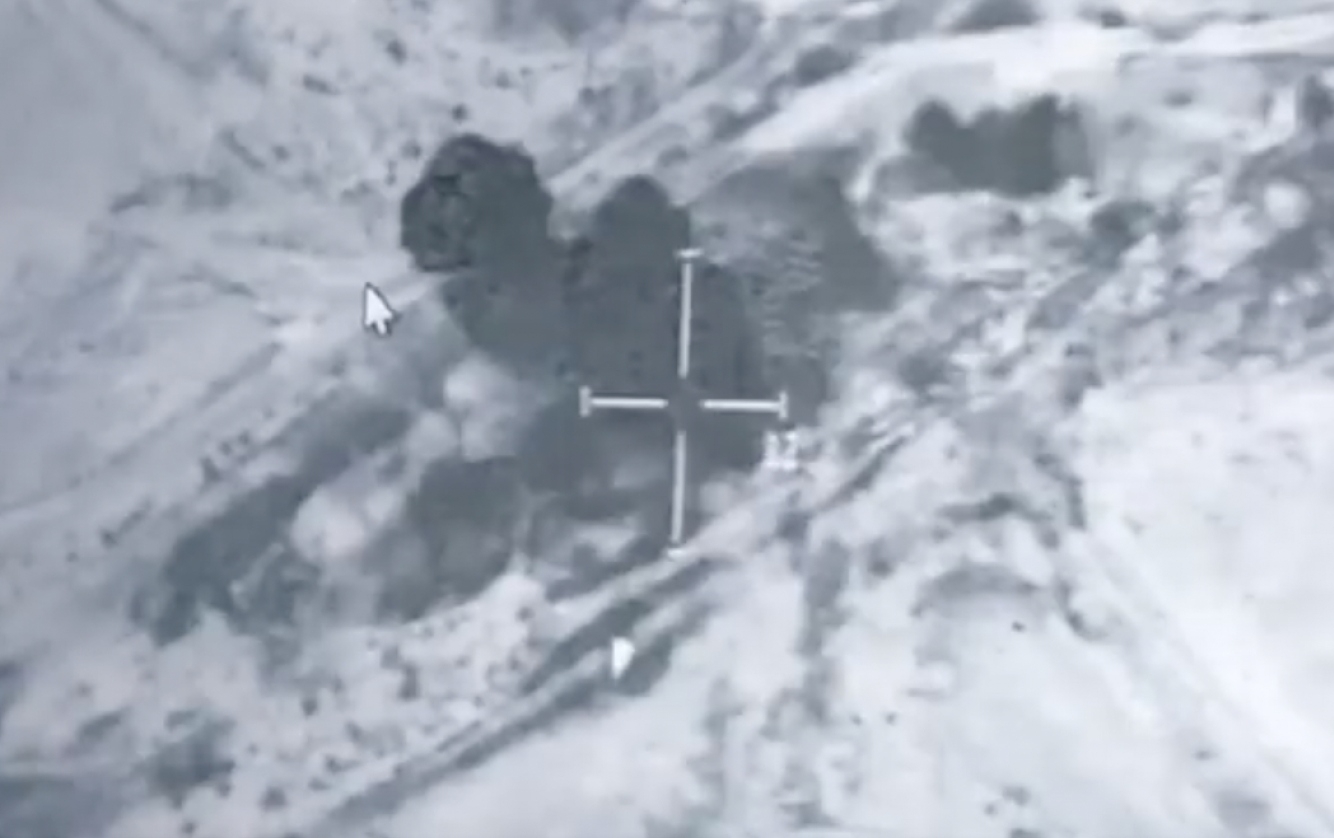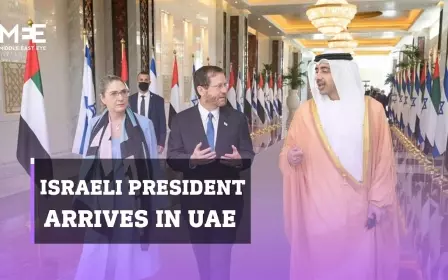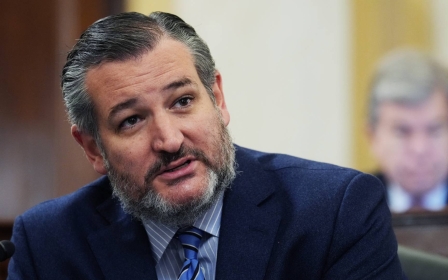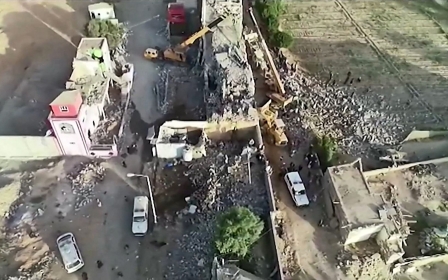UAE intercepts Houthi ballistic missile during Israeli president's visit

The United Arab Emirates intercepted and destroyed a ballistic missile launched at it by Yemen's Houthi group before dawn on Monday, marking the third such incident this month.
The attack came as Israeli President Isaac Herzog made the first-ever visit by an Israeli head of state to the Gulf nation.
The UAE defence ministry, in a statement, said that debris from the missile fell in an unpopulated area and that no casualties were incurred.
The incident follows two earlier attacks on the Emirates in recent weeks. In the first assault on 17 January, three foreign workers were killed, while the second attack was intercepted.
New MEE newsletter: Jerusalem Dispatch
Sign up to get the latest insights and analysis on Israel-Palestine, alongside Turkey Unpacked and other MEE newsletters
In a television address on Monday, the Houthis said they had fired a number of ballistic missiles at Abu Dhabi, the capital of the UAE, and had also fired several drones at Dubai.
"We renew our warning to citizens, residents and companies to stay away from vital headquarters and facilities that will be targets in the coming period," said Houthi military spokesman Yahya Sarea.
A senior Emirati official described the attacks as "useless" provocations that would be dealt with to safeguard national security and sovereignty.
"Those who test the UAE are mistaken," the official, Anwar Gargash, said in a Twitter post.
US State Department spokesman Ned Price said in a tweet: "While Israel's president is visiting the UAE to build bridges and promote stability across the region, the Houthis continue to launch attacks that threaten civilians."
The attacks have led to rare security jitters among some residents in a country where expatriates are a majority, but have had no visible impact on daily life, with restaurants and beaches packed during the peak mild winter season, Reuters reported.
'No danger posed to the president'
In a statement regarding the attack, Herzog's office said: "The president has been briefed on the details of the incident.
"There was no danger posed nor is there danger posed to the president and his delegation."
Herzog later spoke at Dubai's Expo 2020 world fair amid tighter than usual security at the site.
"I hope and I believe that more and more nations will soon follow the UAE lead and join the Abraham Accords," he said.
The UAE normalised relations with Israel under the Abraham Accords which were brokered in 2020 alongside former US President Donald Trump.
The move was denounced by Palestinians as it broke with decades of Arab League consensus against recognising Israel until it signs a peace agreement establishing a Palestinian state with a capital in East Jerusalem.
US travel warning
The US on Thursday advised its citizens not to travel to the UAE over the threat of Houthi missile or drone attacks.
"Rebel groups operating in Yemen have stated an intent to attack neighbouring countries, including the UAE, using missiles and drones. Recent missile and drone attacks targeted populated areas and civilian infrastructure," the State Department warned at the time.
The UAE is part of a Saudi-led military coalition that supports Yemen's government against the Iran-aligned Houthis movement
In 2019, the UAE said that it had withdrawn its troops from Yemen, however, it remains an influential player.
The war in Yemen began in 2014 when the Houthis seized the capital Sanaa, prompting Saudi-led forces to intervene to prop up the government the following year.
Middle East Eye delivers independent and unrivalled coverage and analysis of the Middle East, North Africa and beyond. To learn more about republishing this content and the associated fees, please fill out this form. More about MEE can be found here.





